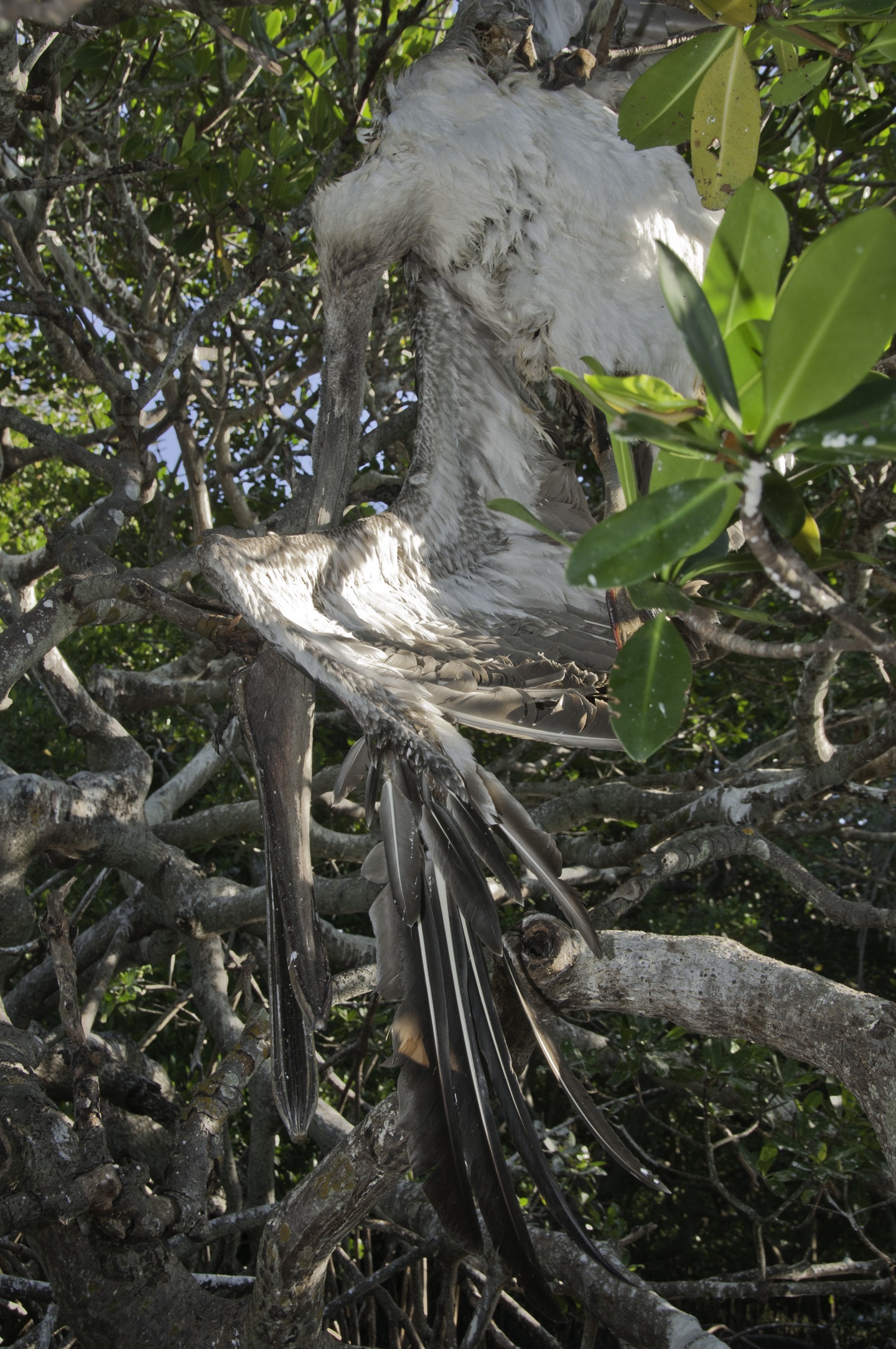It’s an iconic sight at almost every dock in Florida – fishermen celebrating a successful day on the water by sharing fish carcasses with pelicans that fly in for a free dinner.
The only problem: it can be deadly for the pelicans.
“Pelicans are not physically designed to eat the naked bones of filleted large fish; they’re used to eating smaller fish with flesh covering the bones,” says Ann Paul, Tampa Bay regional coordinator for Audubon Florida. “The large bones can pierce their throat pouch, stomach or intestines, resulting in a miserable death for the bird.”
“Anyone who has ever gotten a fish bone stuck in his throat can sympathize with the pain. But for the birds, it can mean a mortal internal infection and a long painful death.”

Additionally, feeding birds attracts them to actively fishing fishermen, increasing the chance that the birds will take a baited hook – it is, after all, the single fish in a school that is injured, attracting the bird’s natural predatory response.
Fishermen who have accidentally caught a bird can elect to reel it in, remove the hook, and untangle line wrapped around parts of the bird’s body. If instead, as often happens, they cut the line, the bird will fly back to a roost site where the fishing line tangles in the branches, a snare that dooms the hooked bird to a slow and miserable death by starvation.
Fixing the issue is largely a matter of education – and that can be extraordinarily successful. “Fishermen don’t want to hurt birds; they just don’t realize that what they’re doing puts the birds at risk,” Paul said.
For instance, the Skyway Pier Bird Protection Committee – a public-private partnership — implemented a series of education measures at Tampa Bay’s most popular fishing pier that reduced the numbers of serious birds entanglements from 550 in 2014 by 80%, or just 44 birds in 2016.
The committee’s slogan – “Don’t cut the line, reel, remove and release” — focuses primarily on asking fishermen to remove monofilament line from hooked birds, but the educational efforts extend to not feeding birds at all. This includes not feeding birds the dangerous filleted boney carcasses but also not offering them any left-over bait. “Birds learn to follow the food, so teaching them that fishermen will share increases their risk of getting hooked or tangled in fishing line,” Paul said.
The issue with fish carcasses is most concerning at the larger docks, piers and marinas where fish carcasses are regularly offered to waiting pelicans and other birds. “The pelicans know from experience exactly when the commercial and sports fishing captains will be filleting their large fish catch. Like clockwork, they congregate to be fed bits of fish, but we are asking the captains, ‘Please don’t feed them, even if they are begging’ – in the end, you are being cruel, not kind,” states Paul.
A recent effort to build underwater tubes near cleaning tables at major docks and marinas would allow the carcasses to be deposited down into the water column, deeper than where pelicans can reach them. However, it’s more complicated than it sounds. Disposing of large numbers of fish carcasses in one spot could present a potential pollution challenge.
In some areas, with a minimum tidal flow, the carcasses could accumulate to become a solid waste issue that impairs water quality. Alternatively, even in areas with a good tidal flow, some experts are concerned that they could pose similar hazards to manatees and sea turtles as those faced by birds.
“We had previously supported the concept of carcass tubes, but our research branch has documented fish carcasses causing peritonitis in manatees,” notes Amy Clifton, a research biologist with the Florida Fish and Wildlife Conservation Commission. “While manatees are mainly vegetarians, they’ll apparently eat fish if they find them.”
The best option is probably installing covered trashcans that the birds can’t open, Clifton said, but that’s a decision currently made by park or marina managers, not a mandate from the state.
“We work with groups like Audubon because it takes a big effort to change the way people have always done things,” she said. “The success at the Skyway Pier – largely driven by Audubon volunteers – show that it’s possible to make those changes happen.”
If you hook a pelican by mistake, here are directions to help you remove your line: http://www.myfwc.com/unhook
To help educate more fishermen about the dangers of feeding fish carcasses to birds, contact your local Audubon Society.
[su_divider]